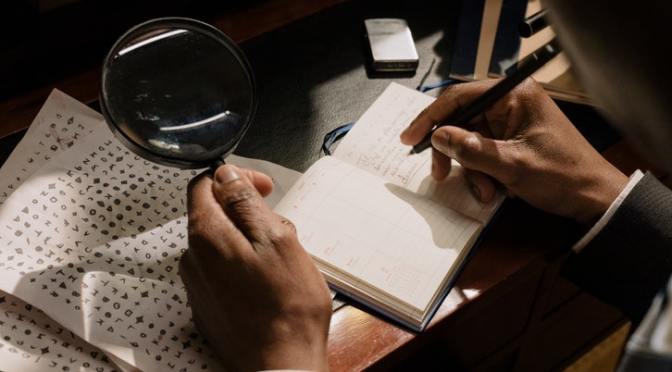Were the authors of the gospels of Mark and Luke connected to eyewitnesses to the life of Jesus? Well, it turns out that there are good reasons to think that Mark was linked to the eyewitness Peter, and Luke was linked to Paul, who had a post-mortem appearance of Jesus in 1 Cor 15:8, and who met with Peter and James in Galatians 1 and again in Galatians 2.
There is a list of evidence for Peter’s influence on Mark on the Cold Case Christianity blog.
Here’s my favorite one from the list:
Peter’s Embarrassments Have Been Omitted
There are many details in the Gospel of Mark consistent with Peter’s special input and influence,including omissions related to events involving Peter. How can Mark be a memoir of Peter if, in fact, the book contains so many omissions of events involving Peter specifically? It’s important to evaluate the entire catalogue of omissions pertaining to Peter to understand the answer here. The vast majority of these omissions involve incidents in which Peter did or said something rash or embarrassing. It’s not surprising these details were omitted by the author who wanted to protect Peter’s standing in the Christian community. Mark was quite discreet in his retelling of the narrative (other Gospel writers who were present at the time do, however, provide details of Peters ‘indiscretions’ in their own accounts. See Cold-Case Christianity for a more detailed explanation).
It makes me laugh to imagine Peter looking over Mark’s shoulder and saying “no, don’t put that in it” and “no, don’t tell them I did that”. Funny! But also very good evidence. The rest of Wallace’s list makes it even more clear.
And what about the gospel of Luke? Well, did you know that the author of Luke’s gospel knew Paul? If you read it carefully, you’ll see that Luke switches from describing history from an “I” perspective to describing things from a “we” perspective in the book of Acts (which he also wrote). Who is the “we” he is talking about?
Here’s famous Christian scholar William Lane Craig to explain:
Now who was this author we call Luke? He was clearly not an eyewitness to Jesus’s life. But we discover an important fact about him from the book of Acts. Beginning in the sixteenth chapter of Acts, when Paul reaches Troas in modern-day Turkey, the author suddenly starts using the first-person plural: “we set sail from Troas to Samothrace,” “we remained in Philippi some days,” “as we were going to the place of prayer,” etc. The most obvious explanation is that the author had joined Paul on his evangelistic tour of the Mediterranean cities. In chapter 21 he accompanies Paul back to Palestine and finally to Jerusalem. What this means is that the author of Luke-Acts was in fact in first hand contact with the eyewitnesses of Jesus’s life and ministry in Jerusalem.
[…]There is no avoiding the conclusion that Luke-Acts was written by a traveling companion of Paul who had the opportunity to interview eyewitnesses to Jesus’s life while in Jerusalem. Who were some of these eyewitnesses? Perhaps we can get some clue by subtracting from the Gospel of Luke everything found in the other gospels and seeing what is peculiar to Luke. What you discover is that many of Luke’s peculiar narratives are connected to women who followed Jesus: people like Joanna and Susanna, and significantly, Mary, Jesus’s mother.
Was the author reliable in getting the facts straight? The book of Acts enables us to answer that question decisively. The book of Acts overlaps significantly with secular history of the ancient world, and the historical accuracy of Acts is indisputable.
This has recently been demonstrated anew by Colin Hemer, a classical scholar who turned to New Testament studies, in his book The Book of Acts in the Setting of Hellenistic History. [5] Hemer goes through the book of Acts with a fine-toothed comb, pulling out a wealth of historical knowledge, ranging from what would have been common knowledge down to details which only a local person would know. Again and again Luke’s accuracy is demonstrated: from the sailings of the Alexandrian corn fleet to the coastal terrain of the Mediterranean islands to the peculiar titles of local officials, Luke gets it right.
I know a lot of people (like my Dad) read the Bible devotionally, looking for feelings or trying to “get right with God” so they get blessings. But I think it’s helpful to look at things from an evidential point of view – how am I going to make a case for this? When you look at things from that perspective, the Bible gets a whole lot more interesting. And you can talk about it with non-Christians when you know about these interesting details.


